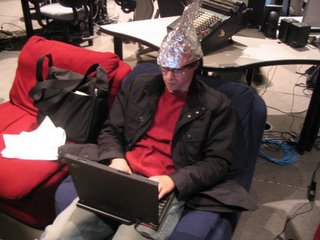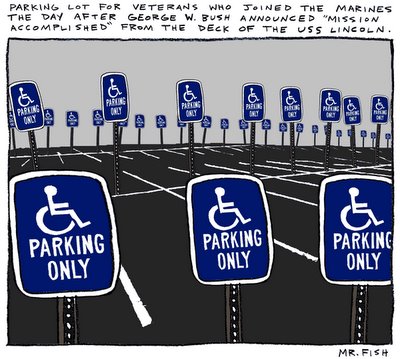In the end, the death of the Roman Empire occurred because its emperors grew obsessed with power and ignored the infrastructure of the Empire -- the roads, border guards, tax collectors, educational system, and bureaucrats that glued the Empire together. Leaders of legions, often barbarians, fought over the Imperial throne, while ignoring the infrastructure that allowed the Empire to function. They cared only for power, not for governing after they obtained power. Indeed, in many cases they lacked the education and outlook that would have allowed them to effectively govern even if they had been interested in doing so.
In the end, the Western Empire collapsed because the bureaucracy, starved of resources, collapsed and was no longer capable even of collecting the wheat tithes from North Africa that were used to feed the hungry millions of Rome. By 600AD, the city of Rome was occupied only by an armed camp of maybe 40,000 half-starved people huddling in the ruins of a city built for millions. The rest had either starved to death when imperial administration collapsed, or had fled to the hinterlands to try to engage in subsistance farming in order to prevent starving to death. Given that the population of the former Western Empire collapsed, with up to 1/3rd of the people dying, it is likely that starvation and the violence of the collapse of Imperial authority (when the policemen, unpaid, walked off the job) took many, many people with them.
I was thinking these thoughts as I rode up US 101 from San Francisco to the mouth of the Columbia River. For most of that ride in California, US 101 is paralleled by an abandoned rail line. This rail line goes through rugged and punishing countryside. It is basically irreplaceable -- we now lack the ability, or the will, to build things of that scale today. Yet it is abandoned, rusting in place. The four lane highway that runs beside it is in much better shape, but drives over and around the terrain, instead of through it like the railroad. And in the roughest places, the four-lane highway disappears and the old 1940's-era highway reappears.
Then once I hit the Oregon state line, there were all these bridges that I went over, soaring high above the rivers and sounds. They were all old, built in the 1950's, in the better days of a greater nation, in the days of can-do America, in the days when it was understood that there were no problems that could not be solved by American ingenuity and American will, in the days when by application of American know-how on a massive scale we had conquered the most evil empire to ever exist on the planet and while we faced another evil empire, we were sure we would eventually win out there too. Those were the days when we were by-god Americans, not a bunch of huddled frightened timid sheep to be led around by the rings in our noses. Even the problems of racism and segregation seemed solvable then. Today.... these bridges and the road they support probably could not be built today. We lack the resources, or the will, to drive highways through such forbidding territory to serve people who, well shouldn't have chosen to live in such forbidding places.
Today, what seems to be the buzzword is what Americans can't do. We can't provide medical care for all of our people because of, well, this that and the other. We can't handle the issue of homeless mentally ill people wandering the streets of our major cities because of, well, this that and the other. We can't put into place a workable bracero program and end illegal immigration along our southern border because of, well, this that and the other. We can't provide power, water, and sewers for Iraqis or New Orleanians. We can't adequately search the rubble of the former city of New Orleans to find the dead bodies. We can't do anything about the 5,000+ missing people from Katrina/Rita. We can't find Osama. We can't. We can't. We can't. Excuses, hand-wringing, and whining about "that's not my job!" are the defining characteristic of modern America. Can-do America, the America of rolled-up worksleeves and boundless optimism that there is no problem that cannot be solved by America and Americans, is gone.
Where did can-do America go? When did we move from being a nation of can-do people, ready to solve the problems of the world, to being a bunch of whiny pessimists who do nothing but wring our hand and make excuses about why various problems cannot be solved? In the end, I believe it is a loss of will, not a loss of ability, that characterizes the new "can't-do" America. And in tomorrow's installation, I talk about my visit to a world-class Asian city during my Thanksgiving holiday, and the very different attitudes encountered there.
- Badtux the Travelin' Penguin




